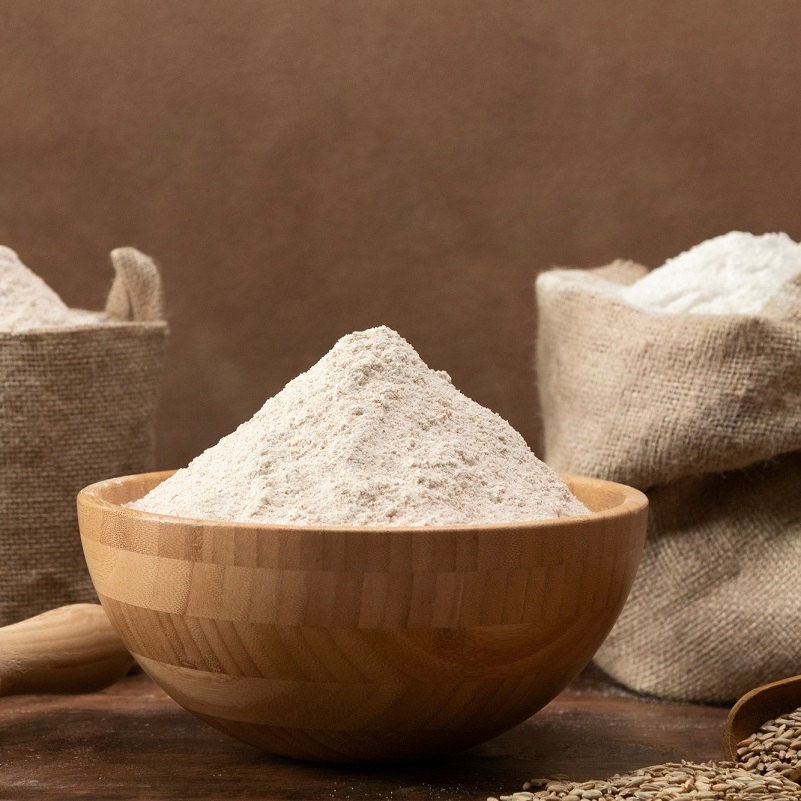With the changing seasons, the residents of Upper Azad Kashmir in the Neelum Valley, Leepa Valley, and Bhairi district have begun preparations for the winter months. These are the areas in Azad Kashmir where, during the severe winter due to heavy snowfall lasting up to six months, their land connection with the government headquarters gets cut off. Therefore, the Azad Kashmir government is obliged to provide timely wheat supplies to these regions. However, this time, the government does not have government wheat stocks in these areas, which has raised concerns among the people that they may become victims of wheat scarcity and smuggling.
Over the past two years, Azad Kashmir has been facing a critical situation due to wheat shortages, leading to protests in various parts of the region. During this time, accusations of mismanagement in the supply of wheat subsidies and wheat provision from Pakistan have also been raised against the Azad Kashmir government.
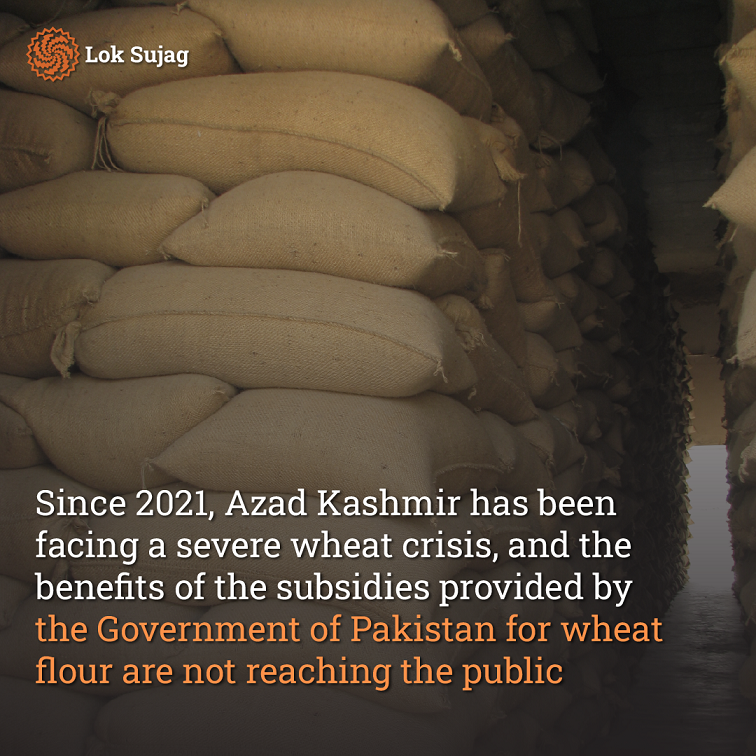
According to information obtained from the Planning and Development (PND) department's official website in Azad Kashmir, the Department of Agriculture in Azad Kashmir is cultivating wheat on an annual area of 8953 hectares, resulting in an annual production of 154,766 metric tons of wheat. Further details about this crop were requested from the Department of Agriculture through the Right to Information (RTI) but were not provided despite multiple attempts, and no written response to the RTI request was given by Secretary Agriculture Javed Ayub.
At present, the government of Azad Kashmir purchases wheat from the Pakistan Agricultural Storage and Services Corporation (PASSCO) to provide a 60% subsidy on wheat to the population of the state. For this purchase, the government of Azad Kashmir has allocated over 5.5 billion Pakistani Rupees annually. However, since 2021, Azad Kashmir has been facing a severe wheat crisis, and the benefits of the wheat subsidy provided by the Government of Pakistan are not reaching the people.
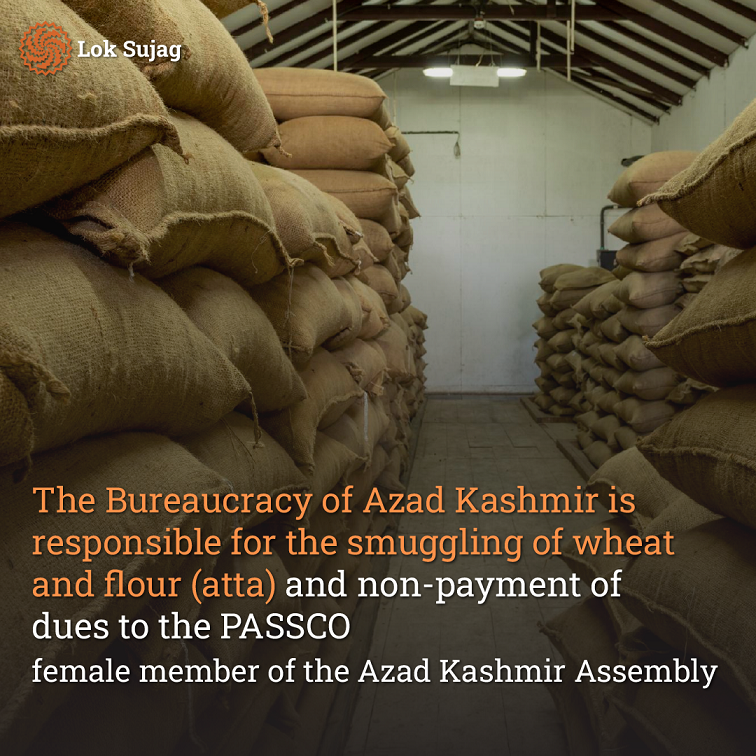
Senior journalist Abdul Hakeem Kashmiri states that "the artificial crisis has become a business opportunity for some, and the supply of wheat has become a profitable activity, leading to the issuance of hundreds of new licenses on an annual basis. In the first six months of 2023, 941 new licenses for wheat were issued. In 2021, there were 5,173 licenses for wheat supply in Azad Kashmir, and by 2023, this number has reached 6,960. It is said that one license is issued for every three thousand people in the population. However, when looked at in terms of the number of licenses issued, our population is divided into 2.8 million."
According to the 2017 population census, the total population of Azad Kashmir was 4 million. However, in the recent population census, the population has decreased to 2.7 million. This decrease in population is due to the fact that more than 1.5 million Kashmiri emigrants or individuals residing in other cities of Pakistan were not counted in this recent census.
According to Faisal Jameel Kashmiri, a representative of the Social Society, and based on the Benazir Income Support Program (BISP) and the Department of Zakat, there are approximately 1.5 lakh eligible families in Azad Kashmir. Meanwhile, the Department of Food is purchasing significantly more wheat, which is raising suspicions of corruption.
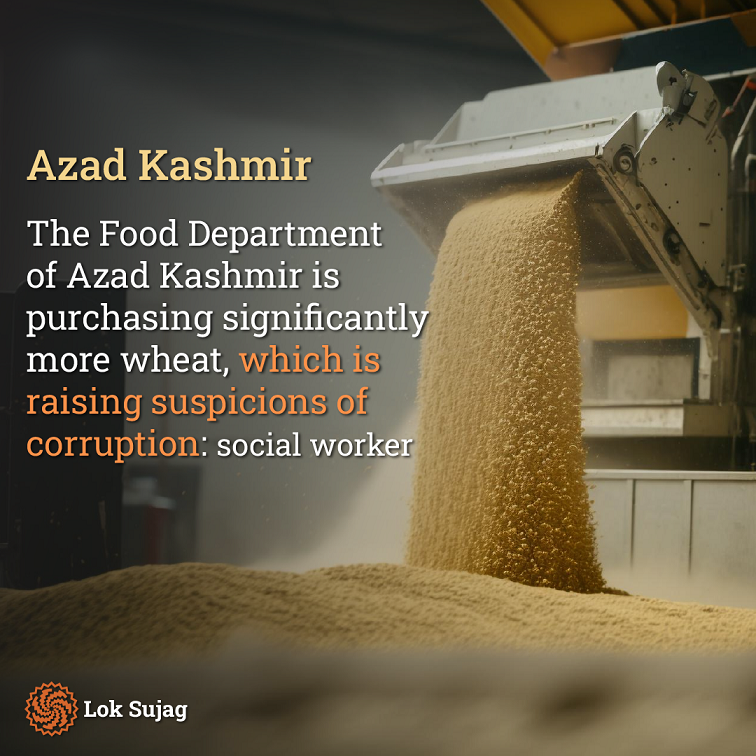
Due to significantly higher wheat purchases relative to the population ratio, the Azad Kashmir government has not been able to fulfill its past obligations to the Pakistan Agricultural Storage and Services Corporation (PASSCO). General Manager Field PASSCO, Mushtaq Shahid, mentioned that the Azad Kashmir government owes PASSCO approximately 12 billion rupees in payments, and this amount is from the past year. Additionally, further expenditures of 11.72 billion rupees are expected until June 30, 2024.
When asked why the Azad Kashmir government has been unable to repay PASSCO, Member of the Azad Kashmir Assembly Nasira Abbasi explained that the government's expenses in Azad Kashmir are significantly higher than its income, which has led to a severe financial crisis. Therefore, in the current situation, it is not possible to repay the 12 billion rupees owed to PASSCO.
In response to questions about non-payment in the past, he stated that wheat and flour smuggling and the responsibilities of PASSCO's repayments are the responsibility of Azad Kashmir's Bureau of Customs, which is responsible for selling smuggled wheat in the open market. He emphasized that wheat quotas should be allocated based on population ratios, and the population of Muzaffarabad is more than eight lakh, while the quota received here is less than the quotas from Neelum and Haveli, even though the requirement here is ten thousand tons, of which only three thousand tons are received.
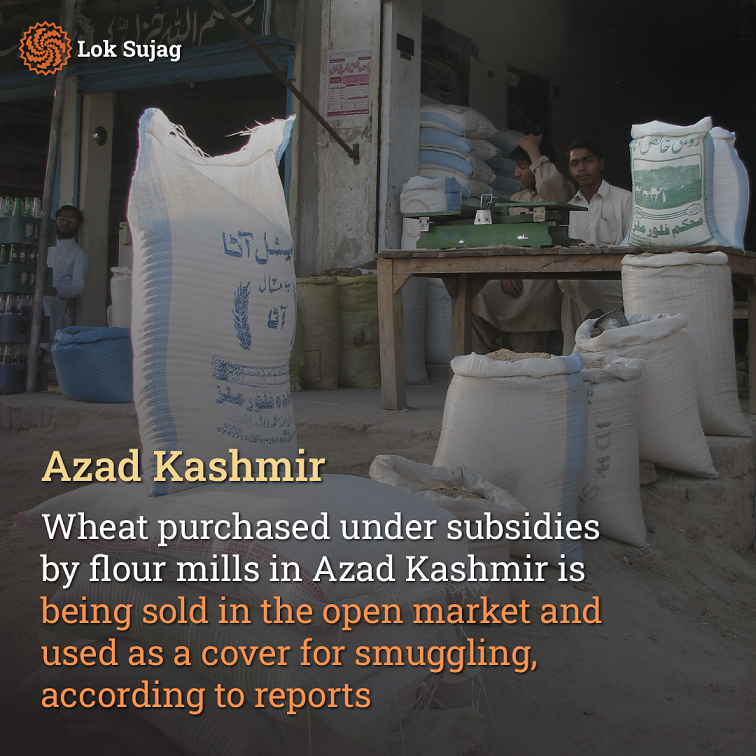
Representative of civil society Faisal Jameel Kashmiri also attributed a significant reason for people not benefiting from the government subsidies to wheat smuggling. He held the Food Department responsible for this, stating that corruption occurs from the purchase of wheat to its distribution and sale, with the department itself being involved in this corruption.
Director of the Food Department, Amanullah Khan, explains the wheat shortage and the government's lack of wheat by stating that the wheat obtained from PASSCO is only meant for 60% of the population, and due to the high price of wheat in the open market, people have started buying government wheat. This has put a burden on the government, leading to the current situation where the Azad Kashmir government owes PASSCO 12 billion rupees.
When asked for details about registered mill owners and information about the wheat quota they receive in Azad Kashmir, Amanullah Khan apologized and stated that providing such details is not possible for him. However, he did mention that there are 13 registered mills in Azad Kashmir, along with 170 wheat depots and 7,500 local dealers who are responsible for distributing wheat to the public.
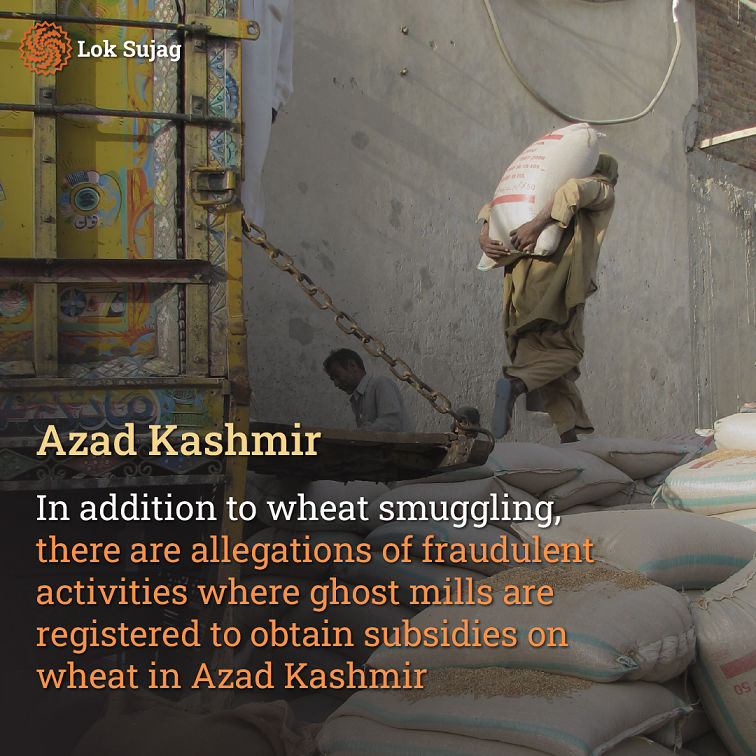
Wheat purchased under subsidy by the government is being used in the market for both open-market sales and smuggling, disguised as "camouflage." Additional SHO (Station House Officer) Chhatr Qazi Khan, in reference to a recent case, mentioned that there was a complaint against a government dealer who was buying wheat from Neelum Flour Mill, altering its packaging, and selling it in the open market. On May 6, 2023, the police conducted a raid, seized 847 private bags, and filed an FIR (First Information Report) against the accused, leading to his arrest.
The Anti-Corruption Department's appointed officer, Muhsin Awan, reported that in August 2023, an FIR was filed against corrupt Food Inspector Javed Ahmed regarding wheat corruption as well. However, the accused has since fled.
Also Read
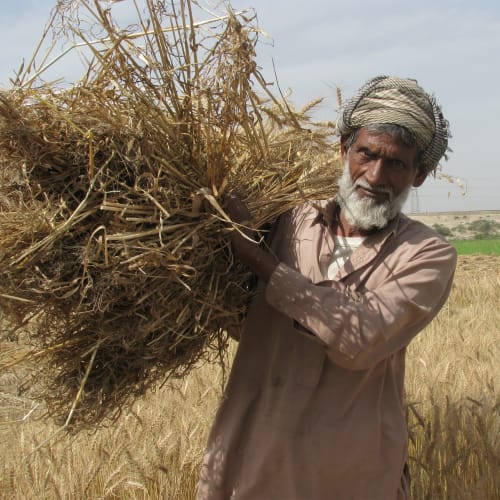
Manipulating the wheat market: 'Private traders are buying the crop for holding and smuggling'.
In addition to wheat smuggling, another means of corruption related to wheat is ghost mills registering themselves to obtain subsidies on wheat. This way, some individuals, including an opposition leader and a minister, have been obtaining cheap wheat. The wheat acquired through subsidies is sold to mills in Islamabad and Peshawar at open market rates. It's evident that several government and opposition members have registered mills and are using this as a basis to obtain quotas for wheat and sell it in the market.
When the Department of Food Azad Kashmir's Secretary was asked for details under the RTI (Right to Information) Act regarding this matter, he neither provided a written response nor was willing to discuss it over the phone.
While examining corruption allegations related to wheat and flour subsidies, Prime Minister of Azad Kashmir, Chaudhry Anwar ul Haq, suspended the Secretary of Food Mansoor Qadir and charged Chairman of the Central Board of Revenue, Amjad Parvez Raja, to head an investigative committee. This committee was formed on July 11, 2023, with instructions to complete its investigation and submit a report within thirty days. However, as of now, the committee has not reached any definitive conclusions, but it is expected to complete its investigations soon.
Since 2021, Azad Kashmir has been facing a severe wheat crisis, and the benefits of the subsidies provided by the Government of Pakistan for wheat flour are not reaching the public.
The responsibility for smuggling of wheat and flour (atta) and non-payment of dues to Pasco lies with the Bureaucracy of Azad Kashmir: female member of the Azad Kashmir Assembly.
Published on 11 Oct 2023
